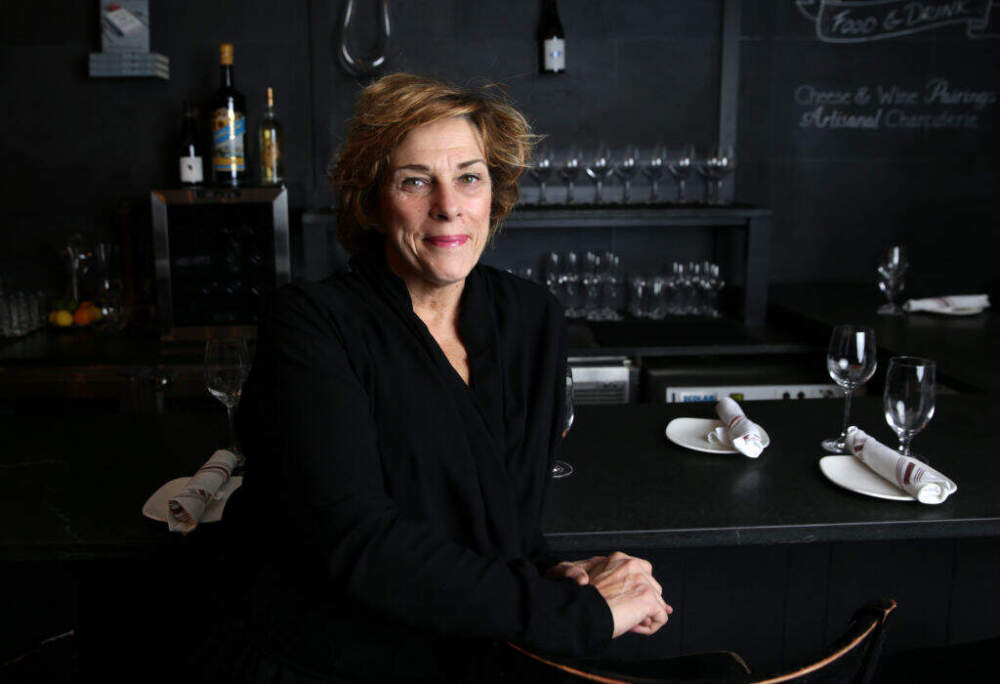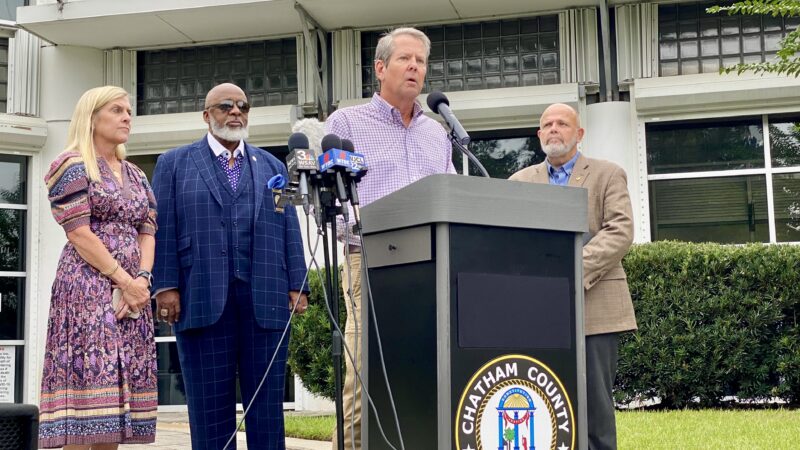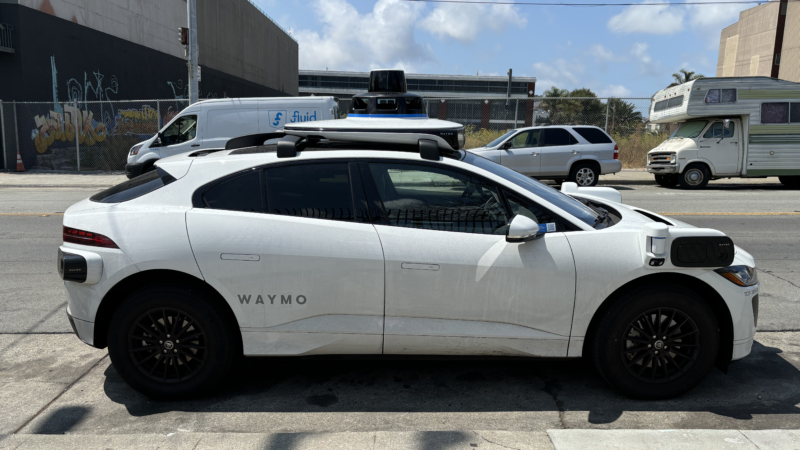Barbara Lynch to close all remaining restaurants, including Boston flagship
Editor’s Note: This is an excerpt from WBUR’s daily morning newsletter, WBUR Today. If you like what you read and want it in your inbox, sign up here.
In case you’re wondering why you hear musket shots coming from the Charlestown direction this morning, today marks the start of the 250-day countdown to the 250th anniversary of the Battle of Bunker Hill on June 17, 2025. (And yes, there will be a big kiosk to count down the days, too.)
But first, the news:
End of an era: Barbara Lynch, the pioneering Boston fine-dining chef who had been marred by turmoil in recent years, plans to close all of her remaining restaurants. As Eater Boston first reported yesterday, Lynch plans to close her Beacon Hill flagship restaurant No. 9 Park, B&G Oysters in the South End and her Gloucester passion project The Rudder. The closures come after Lynch shuttered five other restaurants in the South End and Seaport earlier this year.
- Similar to the previous closures, Lynch cited money as the primary factor. “The harsh realities of the global pandemic and the many difficulties faced calls for significant investment, which neither myself nor my fellow shareholders are positioned to do,” she said in a statement.
- The backdrop: Lynch has taken some big hits to her reputation in recent years. In 2023, she was accused of creating a toxic work environment in the pages of the New York Times and Boston Globe by former employees — allegations which she refuted. She was also arrested for drunk driving in 2017 and is facing a lawsuit from former employees over tips during the pandemic.
- What’s next? The Rudder has closed immediately, while No. 9 Park will continue service through Dec. 31. (The timeline for B&G Oysters is a little less clear.) In her statement, Lynch said she hopes to sell the two Boston restaurants to “ensure those much loved entities will carry on in some small way.”

Holding out hope: Massachusetts officials want to try to prevent a third hospital from falling victim to Steward Health Care’s financial catastrophe. While two hospitals in the state have already closed as part of the for-profit health care company’s bankruptcy process, Steward leaders moved this week to quietly abandon a third: Norwood Hospital. It had been under construction since a flood forced it to close in 2020, but this new move would also affect four nearby outpatient clinics.
- On the market: WBUR’s Priyanka Dayal McCluskey reports state officials hope they can facilitate the transfer of the hospital to a new owner. (Construction work at the property has been idle for months after Steward stopped paying the contractor.) “We’re hopeful that a new operator will step forward at some point soon,” said Dr. Robbie Goldstein, the state’s public health commissioner. So far, however, no takers have expressed public interest.
- What they’re saying: Norwood town manager Tony Mazzucco told Priyanka he was disappointed by Steward’s plans to close the four outpatient clinics, including a physical therapy and imaging center in the town. “We’d hope that smaller operations like this would be able to continue and get picked up,” Mazzucco said.
- Go deeper: Steward had promised to rebuild Norwood Hospital. But as Priyanka reported this summer, the stalled construction has forced Norwood to spend millions of additional dollars to run ambulances to hospitals in surrounding communities.
Wu’s warning: Boston Mayor Michelle Wu provided more specifics yesterday about the potential property tax bill hike homeowners could face next year, if Beacon Hill does not pass her plan to shift more of the tax burden onto businesses. Wu’s office says the average single-family home in Boston (valued at $838,000) would see its tax bill rise by 28% — an overall hike of $768 per fiscal year.
- Since this fiscal year is already under way, the first hike would be spread between just the coming January and April quarterly bills. That means an average jump of over $380 in each bill.
- If Wu’s plan were to pass, her office says homeowners would still see a small increase. But it would be around 10%, or an average of $273 total per fiscal year.
- The proposal — which has stalled in the State House — would need to pass by the end of November to affect January bills.
Paging Bill Weld: A cyanobacteria bloom advisory for part of the Charles River has been lifted. The advisory had been in effect since Sept. 20 for the stretch of the river between the Longfellow Bridge and Charlestown locks. But water samples collected by state health officials this week showed no signs of the blue-green algae.
P.S.— If you’re not meeting The Makers in person tonight at CitySpace, this week’s episode of The Common features three of the artists from this year’s cohort. Listen to the episode here.
This article was originally published on WBUR.org.
Rare comet to streak across night sky. Here’s how you can see it
Your unusual chance to see a comet in the sky is here. C/2023 A3 Tsuchinshan-ATLAS was discovered by astronomers in 2023 — and will appear to the naked eye over the next couple weeks.
GPB morning headlines for October 10, 2024
The National Weather service expects gusty winds and the possibility of coastal flooding in Coastal Georgia Thursday from Hurricane Milton. Georgia Gov. Brian Kemp is pledging to send National Guard troops and other state resources to Florida once recovery from Hurricane Milton begins there. A Fulton County judge has dismissed a petition that sought to force Gov. Brian Kemp to investigate three-members of the State Election Board.
The EPA has new regulations for lead in drinking water. Here’s what they mean for Massachusetts
Drinking water systems in Massachusetts must replace all lead pipes within 10 years, according to federal regulations announced this week. The Environmental Protection Agency will provide nearly $53.5 million to help Massachusetts meet this goal.
‘That’s a bloodbath’: How a federal program kills wildlife for private interests
A federal program kills hundreds of thousands of wild animals a year. Documents obtained by NPR show that many of those animals were killed in places where no wildlife damage was reported.
Internationally acclaimed Israeli writer Etgar Keret looks back on a year of war
Keret, who lives in Tel Aviv, reflects on the protests in Israel and the U.S. over the hostages and Gaza. The son of Holocaust survivors, he has left- and right-wing political views in his own family.
Why does it feel so weird to ride in a driverless car?
Driverless cars are expanding into more markets across the country. In San Francisco they’re already ubiquitous, but the robo-taxis' behaviors are unsettling riders.






